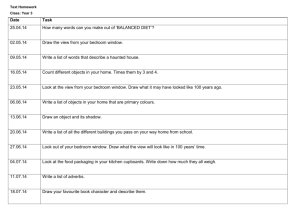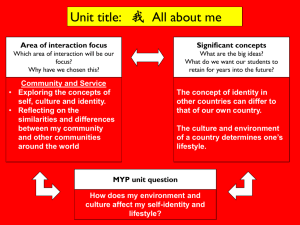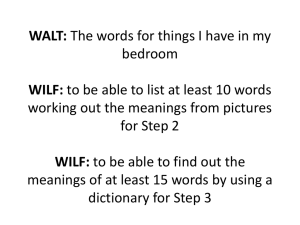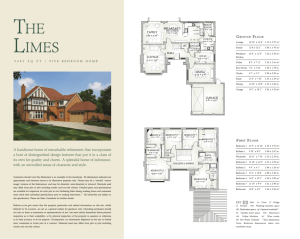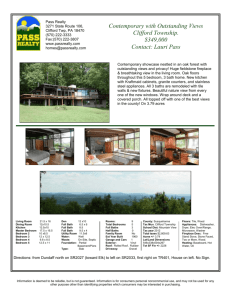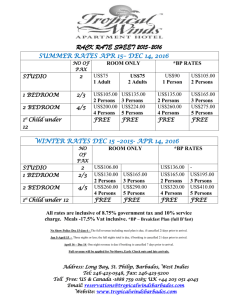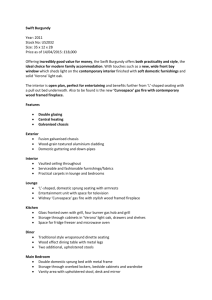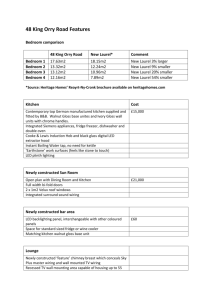Slide 1
advertisement
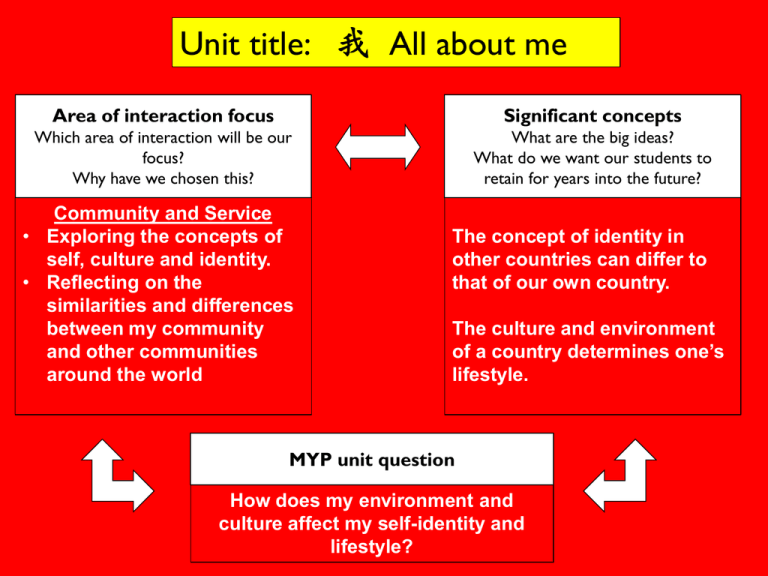
Unit title: 我 All about me Area of interaction focus Significant concepts Which area of interaction will be our focus? Why have we chosen this? What are the big ideas? What do we want our students to retain for years into the future? Community and Service • Exploring the concepts of self, culture and identity. • Reflecting on the similarities and differences between my community and other communities around the world The concept of identity in other countries can differ to that of our own country. The culture and environment of a country determines one’s lifestyle. MYP unit question How does my environment and culture affect my self-identity and lifestyle? My bedroom Learning objective: • Learn new words relating to bedroom furniture in order to be able to describe my bedroom. wòshì 卧室 chuáng 床 zhuōzi 桌子 yǐzi 椅子 guìzi 柜子 shūjià 书架 wòshì 卧室 zhuōzi 桌子 chuáng 床 shūjià 书架 yǐzi 椅子 guìzi 柜子 New words 卧室 wòshì – bedroom 床 chuáng – bed 桌子 zhuōzi – table/desk 椅子 yǐzi – chair 柜子 guìzi – wardrobe 书架 shūjià - bookshelves EXT: Can you write two sentences describing what your bedroom does and doesn’t have. Without looking in your book, can you match the Chinese with the English meaning. EXT: What is the pinyin? 1. 椅子 2. 床 3.书架 A. wardrobe B. to live in/at C. chair 4. 卧室 D. table/desk 5. 柜子 E. home/family 6. 桌子 F. bed 7. 家 G. bookshelves 8. 住在 H. bedroom Fill in the blanks with the correct word 城市 住在 床 美丽 农村 卧室 小 书架 照片 桌子 书 漂亮 坐 柜子 大 喜欢 多了 椅子 我家_____一个小______, 住在 城市 在美丽的______。 农村 这是我 小 床 照片 _____的______。 我的卧室不_____, 有很高的______ , 卧室 书 书架 也有_______, 书架有很多_____。 我朋友的卧室有桌子, 桌子 椅子 但是我的卧室没有_______. 我的卧室也有______, 我喜 坐 欢____椅子看书。 我的卧室也没有______, 我妹妹有我 柜子 喜欢 的柜子。 我很_______我的卧室, 很____, 也非常 大 漂亮 我的卧室比我弟弟的卧室好_____. 多了 _____.
